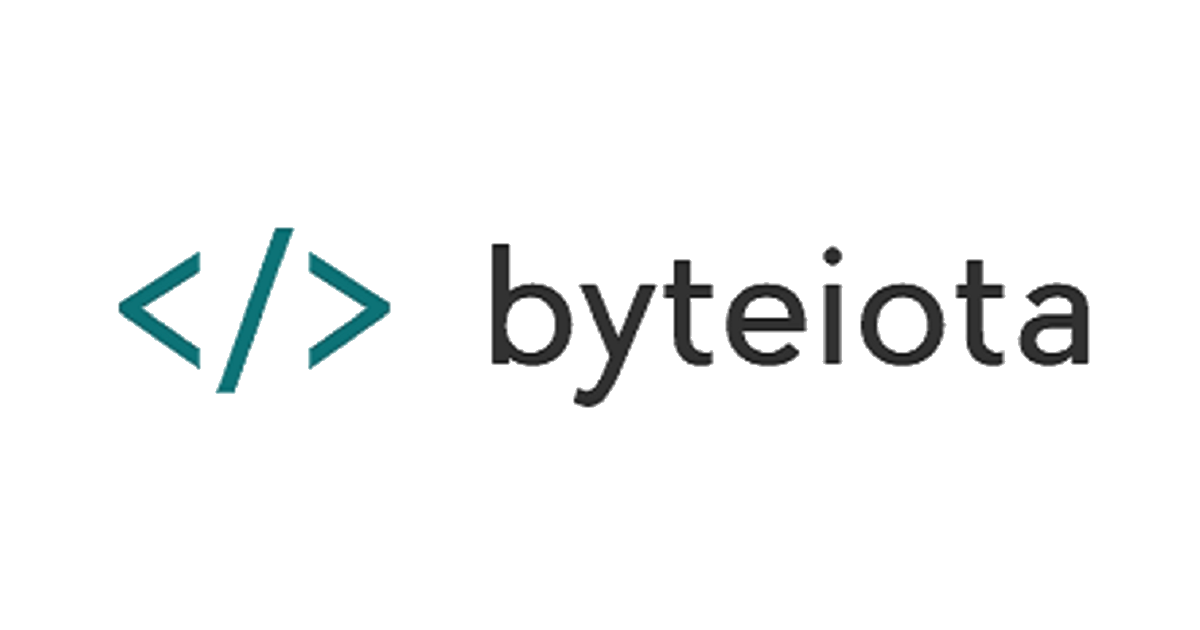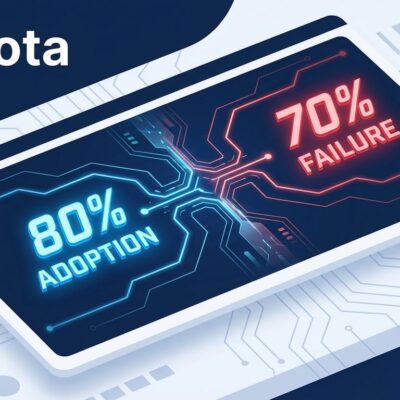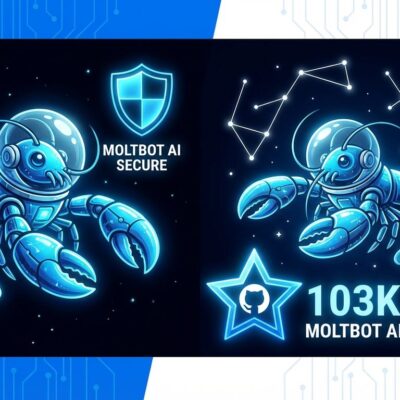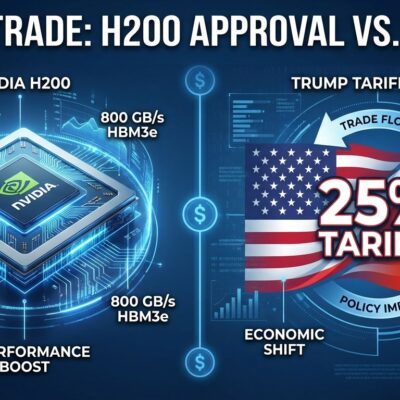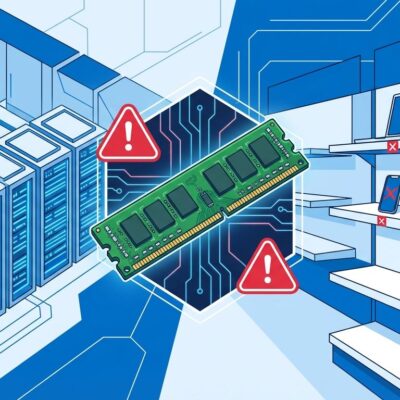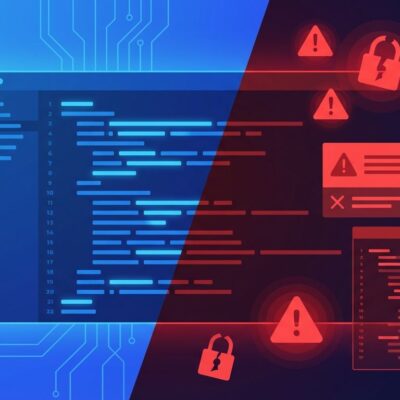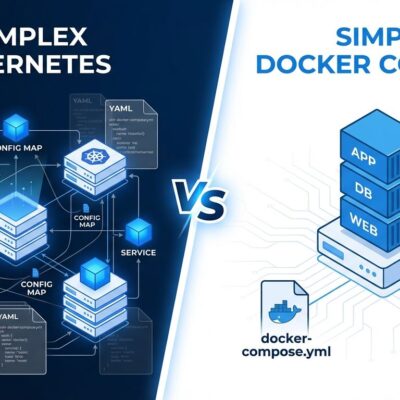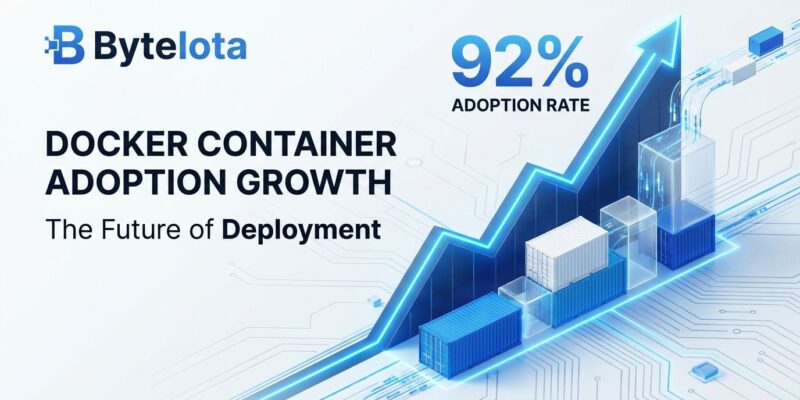
Docker container adoption hit 92% among IT professionals in 2025, up from 80% in 2024—the largest single-year jump of any technology in Stack Overflow’s 2025 Developer Survey. Yet only 30% of developers across all industries use containers. That 62-percentage-point gap reveals an uncomfortable truth: containers are baseline infrastructure now, and 70% of developers are behind.
The Numbers Don’t Lie
Docker usage jumped from 54% to 71.1% in one year—a +17 point increase representing the fastest growth of any surveyed technology. Among IT professionals, adoption hit 92%. Docker’s 63.6% admiration rating (highest among cloud tools) means developers don’t just use it—they want to keep using it.
Docker processes 13 billion container downloads monthly, with revenue growing from $20M (2021) to $165.4M (2023). This isn’t hype. This is infrastructure standardization in real time.
The Skills Crisis Nobody Discusses
While 92% of IT professionals use containers, only 30% of developers across all industries do. IT and SaaS companies adopted fast—68% use microservice architectures versus 31% in traditional industries. That gap is a career liability.
Professional developers show 73.8% Docker usage. Even developers learning to code hit 52.5%. If you’re a working developer without container skills in 2025, job requirements assume Docker knowledge, CI/CD pipelines expect containerized apps, and cloud platforms price accordingly. The industry moved.
Why 2025 Changed Everything
Container adoption surged because infrastructure shifts converged:
Cloud-native became default. Gartner estimates 95%+ of new workloads deploy on cloud-native platforms in 2025, up from 30% in 2021. Microservices are standard for 70% of enterprise apps. When your architecture is microservices and deployment is cloud-native, containers aren’t optional.
Development went remote. In 2024, 36% of developers used non-local environments. In 2025, that flipped to 64%. Remote development demands environment consistency—containers solve that by default.
Docker Desktop matured. 2025 updates brought MCP integration for AI agents, GPU offload for compute workloads, enhanced VSCode debugging, and automatic updates. Docker became a development platform, not just deployment.
The ROI Is Measurable
Organizations report 40-60% faster development cycles with containers versus monolithic architectures. Forrester found 50% faster development, 40% lower infrastructure costs, and 228% three-year ROI from cloud-native migration.
Containers eliminate “works on my machine” problems, enable rapid testing, and simplify CI/CD. The productivity gains compound.
What to Do If You’re in the 70%
Container skills aren’t a six-month program. Get productive in a weekend:
Start with basics. Install Docker Desktop (free for individuals) or Podman (open-source). Write a Dockerfile for an existing project—Node.js or Python. Learn images, containers, and volumes hands-on.
Use docker-compose. Apps need multiple services (app + database + cache). Docker Compose defines multi-container apps in one file. Your entire dev environment becomes reproducible with one command.
Deploy containerized. Pick AWS ECS, Azure Container Instances, or Google Cloud Run and deploy. Understanding deployment shows container benefits: no dependency management, no “worked locally” debugging.
Understand Kubernetes conceptually. You don’t need to operate clusters now, but understand why it exists. Dozens of containers across machines need orchestration. Kubernetes is the standard solution.
Containers Are Present, Not Future
The 92% adoption rate tells you everything. Containers crossed from “emerging tech” to “assumed infrastructure” in 2025. The +17 point jump means the industry flipped, not gradually adopted.
If you’re in the 70% without container skills, this isn’t a 2026 roadmap item. It’s catch-up-this-month signal. The good news: Docker Desktop improvements, Podman alternatives, and managed cloud services make starting straightforward.
The question isn’t whether to learn containers. It’s whether you want to stay competitive as a developer. The industry answered at 92%.
